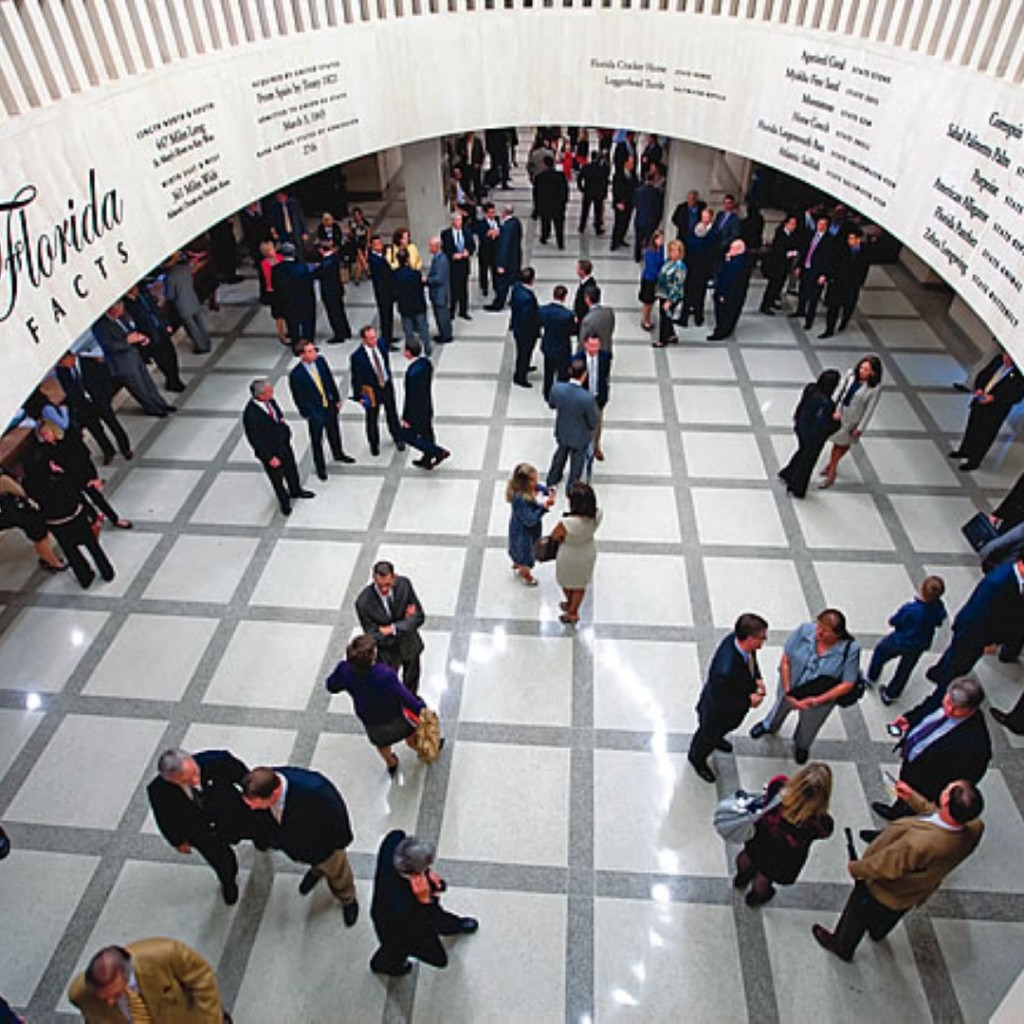
A measure to increase the ban from two years to six years on former lawmakers and statewide elected officers lobbying their colleagues after leaving office is now cleared to be considered by the full House of Representatives.
The House Rules and Policy Committee OK’d the measure (HJR 7001) unanimously on Tuesday. As its second and final review panel, it’s now available to be discussed on the House floor when the 2017 Legislative Session begins March 7.
Extending the lobbying ban is a plank of GOP House Speaker Richard Corcoran‘s program to create a “culture of transparency” in state government.
The proposal, which requires a constitutional amendment, addresses “the perception, if not the reality, of the ‘revolving door,’ ” said state Rep. Larry Metz, the Yalaha Republican who is sponsoring the bill.
“The public is entitled to have the perception corrected, at a minimum,” he added. Metz chairs the Public Integrity and Ethics Committee.
The six-year ban, which would be the lengthiest in the country, already has raised some constitutional concerns over free speech and restraint of trade.
The bill’s own staff analysis notes that “provisions of Florida law that regulate lobbyist activity have been challenged on grounds they violate First Amendment protections.”
President Donald Trump last month “issued an executive order prohibiting executive branch appointees from lobbying the agency which they were appointed to serve for five years after termination of employment,” the staff analysis adds.
Thirty-four states in all have some lobbying ban on former state lawmakers, according to the National Conference of State Legislatures.
“While no state currently has a post-service lobbying ban longer than two years,” the Missouri House of Representatives is considering extending that state’s “lobbying ban applicable to former legislators and appointed state officers (who require confirmation by the state senate) to five years following vacation of office, from six months,” the analysis says.
Metz’s bill was changed Tuesday to remove “appointed state officers,” such as executive-branch agency heads, whose ban would remain at two years.
The rules committee also unanimously OK’d a second measure (HB 7003) that would codify the ban extension into state law and have an earlier effective date.
Measures that create state constitutional amendments have to be approved by three-fifths of each chamber of the Legislature. And any amendment needs 60 percent of the statewide vote to be passed.



